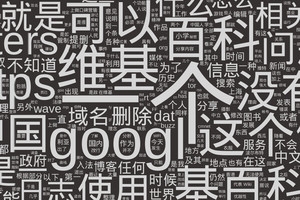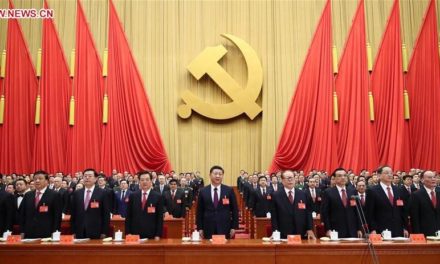di GABRIELE BATTAGLIA, Beijing.
Good bye Internet activism, good morning consumer democracy. In the transition from the Weibo to the Alibaba and Weixin (WeChat) world, the political features of the Chinese Internet are changing along with the business and the user mode. This happens because a whole environment is transforming, meaning an ecosystem of almost 600 millions people which is the Chinese Internet in (growing) numbers.
Once we had Sina Weibo. Well, let’s be clear: the main Chinese social network is not dead and 500 millions registered users are still there, for at least 40 millions of them daily active. But the glorious days in terms of civic engagement are arguably gone.
The Weibo paradox
Weibo appeared in late 2009 and gradually substituted blogs and forum as a media to share news and express opinions.
“There is a paradox”, says Renaud de Spens, who is a sinologist, a language scholar and an expert on Internet in China. “During the forums and blogs era, you had to be willing to go there to get the informations. Weibo was a revolution since it helped to spread informations to the ordinary people: you see the news before you search for it, even if you are not interested, just because your friend posted it”. And here we have the rise of citizens awareness. “The maoist memory pushed many ordinary people not to get involved in news, but Weibo broke this taboo. They weren’t afraid anymore, this is very important.
But the paradox is that this evolved into a system which is more easily controlled, because the State security and the propaganda started investing in Weibo and became more and more efficient”.
The censorship evolution
This happened when the censorship “cut the head of some chicken”, in a long process of adaptation which peaked along one year, from the so called “Jasmine Revolution” (february 2011), through the Wenzhou train accident (july 2011), to the Bo Xilai affair (spring 2012).
During the so called Arab springs. China’s authorities tried to isolate the country from the Middle-East wave and briefly arrested some key opinion leaders when someone posted rumors about an upcoming manifestation in central Beijing’s Wangfujing road. “The crackdown wasn’t really detailed in the Western press which means that the authorities worked really well”, argues de Spens. “I know a girl who worked for the online games department of a huge portal. She just saw the news of the Wangfujing happening and reposted it using her professional Weibo since she simply thought it was cool, but this reached a lot of people who were following that account because they were interested in the online games. Well, I have been said that in an hour there were at least 70 policemen in the office. The western media didn’t report these stories because there was already a lot of pressure and it was very difficult to double-check them.”
Then came the Wenzhou crash in july 2011, when two high-speed trains collided for the malfunction of the electronic security system. A huge tragedy and also a big loss of face, then the authorities arguably tried to cover the real number of casualties. The netizes reacted sharing news on Weibo “and then the central authorities decided they had enough of it – says de Spens – because by that time also the press media wanted to be more free. Even some Beijing’s papers were less and less giving a damn about the censorship. So two newspapers, the Xinjing bao and the Jinghua bao were actually taken over by the Propaganda because they had covered the Wenzhou affair according to the internet news and didn’t pay any attention to the top-down provisions trying to prevent them from publishing. They instead had published even more.”
And then in spring 2012 we have the Bo Xilai affair – the disgraced Chongqing leader and politburo member – with a three-day Weibo comments shutdown (march 31-april 3). On april 6, Xinhua reported that six people had been detained for spreading “rumors” online. The report also said authorities deleted 210,000 online posts and shut down 42 websites since mid-March. Similarly, on february 8 was announced a new rule – to be enforced by march 16 – requiring to register to Weibo with an Id card, “which is interesting because it is impossible to implement – think of the foreigner or the Chinese diaspora users – but it scared people anyway”, says de Spens.
End of Weibo, rise of Alibaba and Weixin
“From 2012 on it is very obvious that Weibo is not as interesting as before”, argues the sinologist. “It is still playing a role, like spreading news, but once many Weibo-born affairs, like incidents in the provinces, were also discussed in the real life by many Chinese, ordinary people. Now they don’t. Once there was a kind of snowball effect, now the global citizenship is just naturally moving on, since you can’t completely stop such a big thing and people keep travelling and exchanging informations.”
But arguably, Weibo is not anymore “the thing”. The new thing is a two-headed one which is changing the rules of the game.
On one hand we have Weixin (WeChat in English), the 2011 born mobile text and voice messenger developed by Tencent, now famous also in the West because of an adv with Leo Messi as a testimonial. In today’s urban China no new acquaintance will ask for your email or mobile number. Your WeChat contact is the way to go, scanning each other’s Qr code or shaking the two smartphones in your hands to let them get in touch by themselves. We are talking of about 300 millions users in China with 100 millions more on a global level.
On the other hand it’s Alibaba time, the e-commerce world leader owning different web portals including Taobao (consumer-to-consumer, 760 million listed products), Alibaba.com (the world’s largest online business-to-business trading platform for small companies, which generated 4.1bn dollars in revenue after processing 170bn of sales in 2013), Tmall (business-to-consumer platform where over 70,000 international and Chinese brands have established retail storefronts).
Go mobile
With Baidu (search engine), Alibaba and Tencent form the so called “BAT”, i.e, the “Big Three” of Chinese internet industry. They are actually acquiring other companies to expand their business to a larger scale, especially in the mobile business, which is the new trend, since potential mobile internet users are already 820 million with a 69.2 per cent penetration rate and still growing.
The new battlefield will be the 4G technology: “I think it will change the video and games scenario because of a new speed and lower costs. China’s telecoms just got the licence for 4G and they are upgrading their systems. Everything will move further to the mobile sector since you will be able to play better games and see more videos through your mobile device”, argues Will Tao, analysis director at iResearch, a leading market research firm focusing on China’s internet industry.
The new big business will be a mix of community, games, e-commerce and financial services in a mobile environment. And guess, Alibaba last year bought 10 per cent of Weibo to mix up the biggest online store with the equally biggest social network, “since they already tried to do their social media and they failed because they were not familiar with that world”, adds Tao.
On its side WeChat is now planning to distribute wealth products via smartphones and offer payment options for fund managers. You will be able to store your savings straight from your mobile device via TenPay, Tencent’s payment system. Roughly summarized, you could deal with your money at any time and with no limit to the amount.
Now we have definitely veered from a social to a business point of view. But this is just the new material base. And is now time to shift back to the social and political issue.
From the world to the guanxi. But not entirely.
“In the Weibo environment all is about sharing to the wide world news and what you are interested in, while with Weixin you can instead just communicate with your closest friends”, says de Spens. “From a marketing point of view – argues Tao – Weibo is like a newspaper, a broadcaster to the whole population, while Weixin is like a magazine or a cable-tv because it has to do with smaller groups of people with the same idea about something.”
But this self-encirclement in your own guanxi is also a kind of revolution but on a more personal level: “It helps people speak to each other – says the sinologist – and also to strangers. The big thing about WeChat is also geolocalization, so you can see for instance that you neighbour is an English teacher and is the same age as your dad’s. It’s a way of knowing each other. Once you had your danwei and it was very difficult to mix circles, China was very aristocratic in a way: teachers with teachers and taxi drivers with taxi drivers. Weixin has emerged when these closed circles had been already broken so the whole process can’t be so backward as it could be 10 years ago”. No step back.
“Two trends are happening at the same time”, adds Tao. On one side everything is getting more open, because people have more informations and more quickly. On the other side, with Weixin we are getting more encircled in our own guanxi, but this doesn’t substitute the other trend to share informations with a wider world”.
And official media like Cctv must react just in time as well. “They have to do that because too many rumors are spreading quickly – says the market analyst – so they need to point out their version. If the rumor is true, they generally don’t speak of it, otherwise they immediately say: «No no no, I have evidence that it isn’t like that». I think this is good because before they didn’t care about what the people were saying and now they must. This makes the society more open and aware. Actually China is not a citizens’ society but in this way it’s getting more and more similar to that.”
From global activism to consumer democracy
“The most innovative company in China is by far Alibaba which actually is not Ebay”, says Tao.
“Look at Taobao. It is not only a matter of single customers selling their stuff, but has already evolved towards real vendors, businessmen, many of them are manifacturers, who open their shop online. That’s because of the different retail environment between China and the Us, where Ebay was born. In the States the system is very developed while in China it is sometimes difficult to find what you need and there are many fakes around. But Alibaba online system gives a guarantee. It seems not so important but a set of new functions really satisfy Chinese users and take note that this is not so easy.”
And here we have Alibaba’s ranking model which concerns no less than transparence and accountability.
“I think Taobao is helping the opening-up because of the technique of ranking: the way you can evaluate the seller and also the buyer even if you don’t know him”, says de Spens. In a way, it’s a market oriented follow-up of Weibo: “Weibo has become a help in expressing your ideas because you interact and you also find people you admire who have a say on a specific issue. Then if some of them say that a movie is crap you feel legitimate to argue the same and as the time goes by this becomes a process of self-consciousness that there wasn’t before because the Party had a conscience for everybody and people were also scared to argue in the family not to hit the harmony.”
Through the market, Taobao helps the same process. “When you buy something it’s always harsh – adds the synologist – because while contracting you can make other people lose face, but Taobao is indirect and gives you always a choice: if you buy something which you are not satisfied of, you can talk to the seller in a private chat and try to settle it. And if you don’t settle it privately you can then publish the complain it in the public section and also rate the seller down. This means that you have many means to express satisfation or dissatisfaction, which is very similar to how we can react in a democracy: you can vote, you can try to settle a problem and if you don’t you can let it go public.”
So a kind of citizen consciousness, if not activism, is still growing through the consumer realm. In this context the vendor is a kind of politician and giving him money or a good rate is like giving him power in a kind of social contract. But you can always rank him down and control him. “As an outcome, if you compare the level of Alibaba’s service you see it’s incomparably better than in Ebay: they give you a call if they don’t have something in stock, they apologize and ask if you would like anything else. In other words, they have to give you answers.”
Financial springboard
rating, controlling, discussing, settling: it’s not so far-fetched to argue that Chinese netizens are learning the techniques of a very material democracy through their consumer activities. Now, consider that Alibaba – and its model – will be probably at the forefront of a new private financial system which is the way to go if we take in account Beijing’s leadership reforms scheme. The almost inevitable follow-up is that banking could be the springboard for the next step in this learning process.
Following a recent agreement, Minsheng Bank – China’s main private bank (10th when the ranking includes state-owned lenders) – will probably add banking skills to the Alibaba’s e-commerce and e-credit system while Weibo will provide its huge database of potential customers and the possibility to profile them according to keywords. As seen before, Tencent (Weixin/WeChat) is similarly moving on the same way.
Yes, it’s a big business. But it’s also a huge environment of people who rate, discuss, complain, settle conflicts according to given rules. Sounds familiar.

















